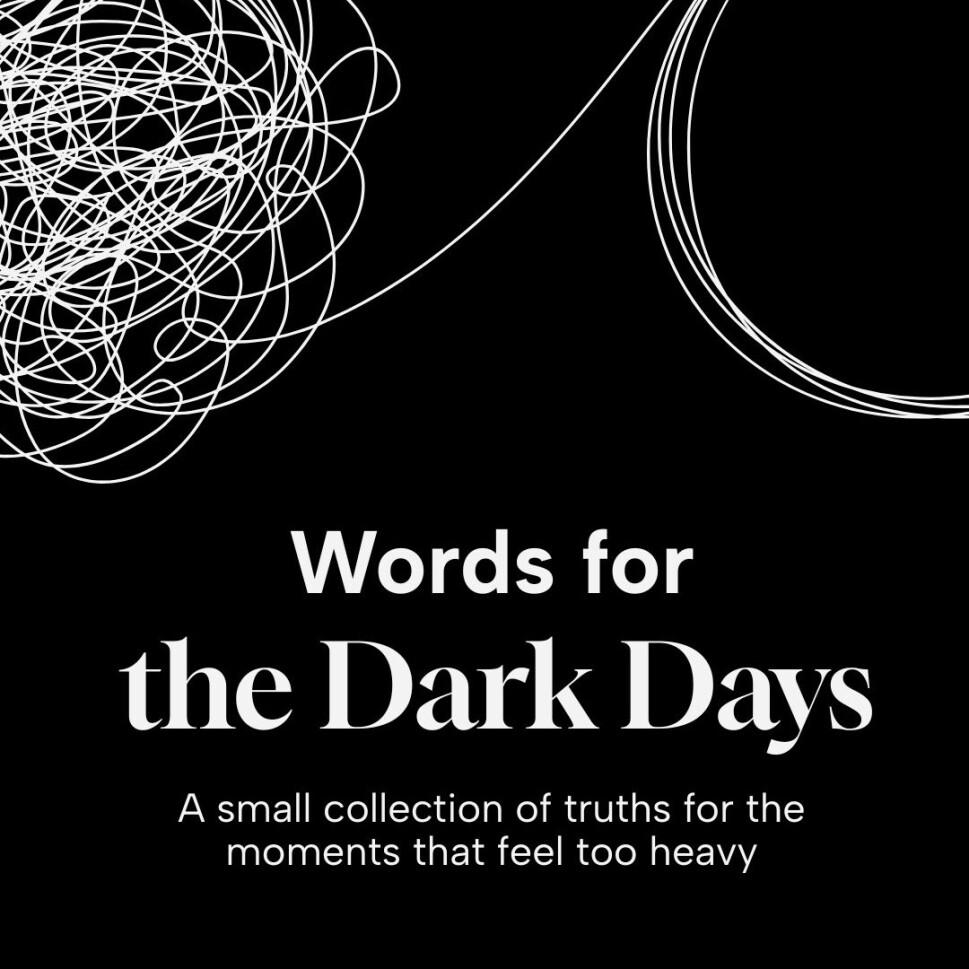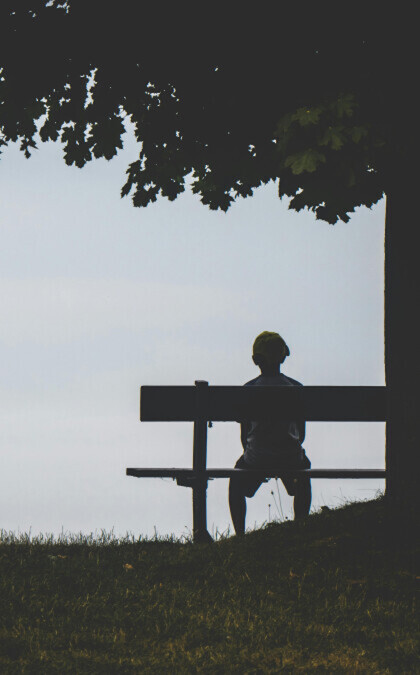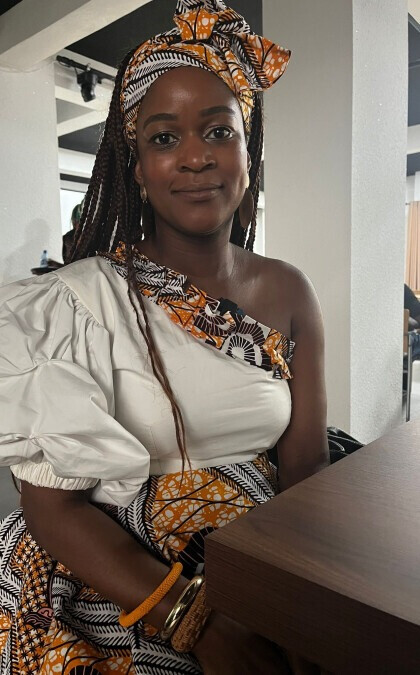I was looking for a way out of the suffering
“I didn’t really want to die, I just wanted the suffering to stop. I didn’t see any other way out.” Charlotte’s life took an unexpected turn when she became chronically ill after her studies. It started with vague symptoms, but she became increasingly ill. Due to the high medical bills, the isolation and the burdens, she couldn’t see the forest for the trees… This is her story:

“Before I got sick, I was enjoying student life to the fullest: fun studies, friends, work, parties, traveling. I was really happy.” When I first got sick, I wasn’t really worried. The first two years I was full of fighting spirit and in solution mode – what can I do to get better? But after six months I still wasn’t better, and a year later still not. Then the realization started to sink in: I might never get better. And I found that very difficult. I was in so much pain and so little energy. I literally and figuratively had to fight to stay upright. I often lay in a dark room or sat in a wheelchair. And despite lovely friends and family, I often felt alone.”
Seducer
“I didn’t just become suicidal. It built up slowly. First the thoughts came when I was lying in bed: what if I don’t wake up tomorrow? Secretly I hoped that would be the case. Then the suffering would stop. Death beckoned. Like a seducer whispering in my ear. Then I would sometimes sit in the car and think: if I drive into this tree now, it will stop. I felt increasingly numb and empty. But also guilty, because I didn’t want to cause those around me any grief.”
Death beckoned. Like some seducer whispering in my ear.
Lonely
“I didn’t talk about these dark thoughts for a long time. Out of fear and shame. Afraid of being judged, but also that it would hurt my loved ones. That’s how I became increasingly lonely, even though I had very nice people around me. But I also judged myself harshly, because I thought I shouldn’t have these dark thoughts. It wasn’t that bad, was it? There are so many people who have it much worse or have experienced worse things. At least I had people around me who cared about me and took care of me. So don’t be so weak, I told myself. Because of this, I was not only physically alone a lot of the time, but I also felt alone when I was with other people. They didn’t know what was going on in my head, and I didn’t dare share it.”
Misunderstanding
“People with chronic illnesses also often have to deal with a lack of understanding, especially if you can’t always see anything on the outside. This applies to both the environment and the healthcare system. Doctors still know so little about my illness. I just hoped that they would believe me. It is so difficult when you feel that people are doubting you. That a doctor tells you: I think it’s all in your head... The sky-high medical costs in an attempt to find something that could help me or alleviate my symptoms, I also had to pay out of my own pocket, because in the Netherlands very little is reimbursed for infectious diseases. This caused so much stress, because I couldn’t work and all the healthcare appointments and the administration of all the bills alone cost me too much energy. For me, loneliness, financial stress and physical pain due to my illness were a cocktail for deep dark thoughts about death. The hopelessness and not being understood or helped was so overwhelming. I looked for a way out of the suffering.”
For me, loneliness, financial stress and physical pain from my illness were a cocktail for deep dark thoughts of death.
The step to suicide
“Because of my illness, I had to start in a rehabilitation center at one point, and there I slid down to my deepest, darkest valley. I tried to get care, but was not believed by some doctors and had to do more than I could physically handle. I really suffered medical trauma there. Not being recognized hit me hard. I even started to doubt myself: am I crazy? I froze completely and then thought: death is the only way out. Where I had previously longed for death, I now took the step towards suicide. I had resisted for so long, but I could no longer cope with the suffering.” “The suicide attempt failed. Now I can say: fortunately. But at the time I was especially shocked. I was disappointed in myself. How had I let it get this far? I thought I would be stronger. I felt weak. And scared because I had apparently dared to take that step. What if I do that again? The weeks and months that followed felt like deep darkness. I constantly longed for death and wanted to live at the same time. A paradox.”
Compassion
“In very small steps, more color came back into my life. By carefully sharing more with people about how I feel and by not looking at all the things I couldn't do, but especially at the small things I could do, despite my illness. For me, that meant looking for distraction to get out of the moment. So playing a game or calling friends. I also had to learn to indicate what I needed and then ask for it. Temporary medication also helped to remove the darkest edge and become more stable. Recovery takes a lot of time. Many small steps. For me, compassion is the key word: compassion with myself and not judging.”

Permanent injury
“I still remain vulnerable to thoughts of suicide. A wound that never completely goes away. It is as if my brain has found a familiar path that it walks when things get difficult again. What helps me is accepting that this is just how it works for me. These thoughts can come up again, but I no longer want to be afraid or scared of them. No longer trying to prevent them from happening, but being prepared when I get dark thoughts again. And having confidence that I can handle it and know what to do to help myself. Which also means asking others for help and talking about it right away. Despite the fact that I am still chronically ill, I am doing much better mentally. I am glad that the attempt was unsuccessful. I enjoy the little things, the nice people around me. By talking to them, some more light came into my darkness. Life is worth living after all.”
By talking, some more light came into my darkness. Life is worth living after all.
Tip from Charlotte >>>
"Start the conversation with others and seek help. It may take many small steps, but eventually, your darkness will become a little lighter."

Start the conversation
Recognize Charlotte's struggle? As she herself says: by talking, more light came into my life. Start the conversation and share what's bothering you.




